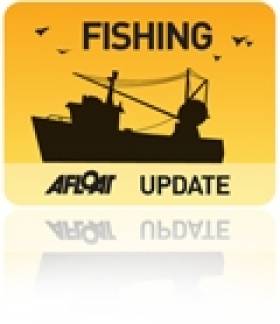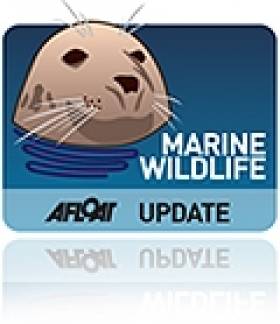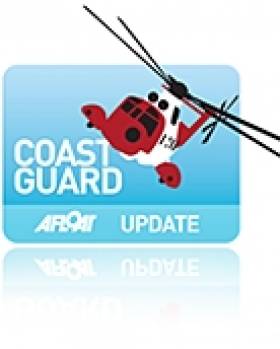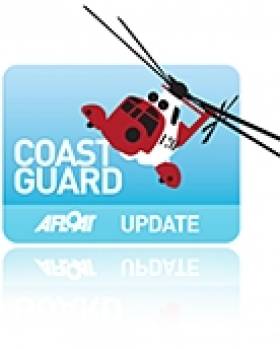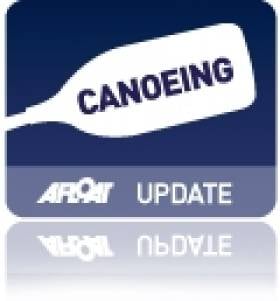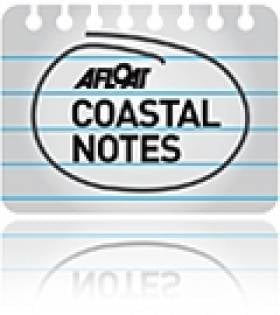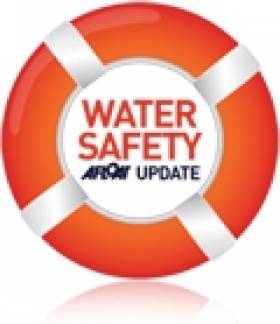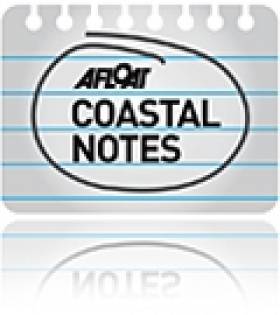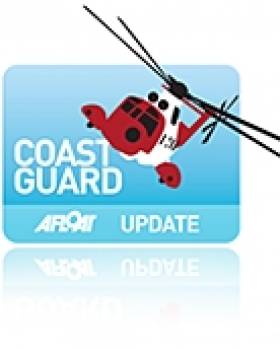Displaying items by tag: United Kingdom
Pioneering Programme for Isle of Man Scallop Fishery
#FISHING - Conservationists and the fishing industry have joined forces in a new venture to evaulate the state of the Isle of Man's scallop fishery, as the Guardian reports.
Both sides will co-manage the 35-square-mile Ramsey marine nature reserve in the Irish Sea, collecting data to show what progress the scallops have made since fishing in the area was banned in 2009.
It is hoped that the study will lead to a renewing of leases for scallop fishing, which is worth up to £12 million annually to the Isle of Man's economy - though industry leaders have doubts that the new arrangement will serve the island's fishermen.
Some 2.6% of Manx waters are protected, with more than 1% 'highly protected', which is in stark contrast to the rest of the United Kingdom after plans for a national network of conservation zones were shelved till at least next year.
The Guardian has much more on the story HERE.
Public Needed to Help Record Whale and Dolphin Strandings in UK
#MARINE WILDLIFE - Some 46 reports of stranded whales and dolphins in Northern Ireland are among the thousands recorded across the UK over the last six years, according to BBC News.
A new study co-ordinated by the Zoological Socoety of London (ZSL) shows that some 3,500 cetaceans were stranded on the British coastline between 2005 and 2010.
Though year-on-year figures have fallen overall, is presumed that many more strandings have gone undetected.
Many were found to have died of disease or starvation – particular harbour dolphins.
But human activity such as fishing, shipping and chemical pollution also poses a significant threat to marine wildlife in the waters around the British Isles, said Rob Deaville of the ZSL.
The public is being encouraged to report stranded marine mammals to help create a more accurate picture.
BBC News has more on the story HERE.
Irish Sea Conservation Zones Shelved Till 2013
#MARINE WILDLIFE - Some 14 Marine Conservation Zones in the Irish Sea are among the network of planned marine wildlife sanctuaries around the UK that has been postponed.
The Liverpool Echo reports that the UK Department for the Environment, Food and Rural Affairs (Defra) has shelved plans to create the conservation areas by the end of 2012 after pressure from "groups that use the coastline frequently including fishermen, yachting enthusiasts and seaside villagers".
There will now be a six-month delay while and impact assessment on the network of well over 100 proposed sites is presented to the British government.
As previously reported on Afloat.ie, conservation groups have raised concerns that fewer than a quarter of the proposed sites around the UK will receive official protection.
It's Official - Bangor Coastguard Will Stay Open
#COASTGUARD - The UK's shipping minister has confirmed that Northern Ireland will retain its only coastguard station, the News Letter reports.
Mike Penning made the survival of Bregenz House official at the House of Commons yesterday, marking the end of what has been a successful campaign by the station's supporters.
As previously reported on Afloat.ie, the control centre at Bangor was given a last-minute reprieve by the minister in July under revised proposals to streamline the UK's coastguard network.
Bregenz House will be one of eight stations set to remain following the cutbacks, and one of just three across the whole UK that will have 24-hour service.
However, concerns are still being expressed about the wider area that the Bangor station will now have to cover, with the coastguard workers' union calling for assurances that the "same level of service" will be preserved.
Online Petition Challenges Cuts to UK Coastguard Network
A campaigner on Twitter is encouraging supporters to sign an online petition against the closure of coastguard stations across the UK.
So far almost 7,000 signatures have been added to the petition started by Twitter user @Coastguard_SOS in protest at the UK government's plans to streamline the Maritime and Coastguard Agency's nationwide network of rescue centres from 19 to 11.
As previously reported on Afloat.ie, campaigners in Scotland have made a desperate plea to save the Clyde station from closure in a public consultation.
Northern Ireland's rescue command centre at Bangor on Belfast Lough is among those saved from the chop following a review of reform proposals this past summer.
But concerns remain that resources will be stretched too thin if fewer stations are responsible for broader areas.
"The revised proposals are also unacceptable not least on the basis that vital local knowledge will continue be lost and therefore lives will continue to be out at risk on our coastlines," the petition warns.
UK Canoeing and Kayaking Stats Published
The UK's Maritime and Coastguard Agency (MCA) has published its annual canoeing and kayaking report for 2010.
Among 456 incidents involving canoes or kayaks across the UK, which include nine fatalities, many were due to people underestimating weather and tidal conditions.
The report highlighted that many canoe and kayak owners in Britain do not wear essential safety kit such as buoyancy suits or lifejackets, do not include contact details in their craft, and are not a part of the CG66 small boat safety scheme which enables the coastguard to easily identify them.
There have also been increased reports of kayakers getting into difficulty which turn out to be kayakers fishing offshore. The MCA urges any kayakers doing so to contact the coastguard to avoid wasted searches.
The report is available to read and download HERE.
Ireland's Bathing Spots Among Cleanest in Europe
Ireland has ranked fifth in a new Europe-wide report on bathing water quality - but some beaches in Northern Ireland are falling short of strict EU standards.
MEP Jim Higgins welcomed the results of the annual Bathing Water Report for 2010, saying: "Ireland's scenic attributes are a primary reason for attracting tourists and it is essential that our coastal and inland bathing sites are also enticing."
Ireland has moved up five places from its overall rank of 10th in 2009, with 90.1% of all bathing water sites meeting the EU's Blue Flag guidelines for water quality at beaches and swimming spots.
However, the Daily Telegraph reports that a number of beaches in Northern Ireland and other parts of the UK were judged to be 'poor'.
Beaches at Newcastle and Ballyholme in the North are among 16 across the UK that did not pass the EU's strict checks for Blue Flags.
The 2010 report ranks Cyprus as the cleanest bathing spot in Europe, with 100% of sites passing EU insspection. It was closely followed by Croatia with 97.3%, Malta at 95.4% and Greece at 94.2%.
New Database Reveals Deaths in UK Waters
The first report from a new incident database shows that more than 400 people died from accidents or by natural causes in water across Great Britain and Northern Ireland in 2009.
The WAID (Water Incident Database) was developed by the National Water Safety Forum (NWSF) to enable greater detail and volume in collecting data on fatal and non-fatal drowning, other water-related deaths and injuries, and near misses.
Of the 405 total deaths in 2009, more than half (213) occurred in inland waters. Nearly a quarter (99) happened on the coast or in a harbour, dock, marina or port, while one in seven deaths (57) happened further out at sea.
There were 19 deaths as a result of incidents in baths, five in swimming pools and one involving a water container. Eleven people died in places that are not usually watercourses, such as flooded areas.
The most commonly reported activity, which accounted for 78 fatalities, was someone entering the water while walking or running, for example to cool off or by falling.
Saturday was noted the most common day and August the most common month for fatalities to occur.
David Walker of the NWSF and the Royal Society for the Prevention of Accidents said: “Managing water risks is all about a balance between giving people freedom to make informed choices about how to enjoy water and the impact those choices have on society in general."
He added: "By providing better information, WAID will assist in striking that balance and enable us to develop more effective prevention work.”
WAID was developed by NWSF member agencies and bodies in partnership with the UK Department for Transport. For more information and to view the report visit www.nationalwatersafety.org.uk.
Renewable Energy 'Milestone' for Northern Ireland
The UK's Crown Estate has announced a consultation on making areas of Northern Ireland's sea bed available for renewable energy projects, Business & Leadership reports.
The consultation process will inflence leasing rounds for offshore wind and tidal energy projects in September this year, with the potential for development rights to be awarded as early as spring 2012.
Junior Minister Robin Newton commented at yesterday's launch event in Belfast: “Today marks a major milestone in the development of marine renewable energy in Northern Ireland waters."
Energy Minister Arlene Foster added that Belfast harbour "is well placed to become a major offshore logistics centre in the rapidly expanding offshore wind sector".
Business & Leadership has more on the story HERE.
Bangor locals came face-to-face with officials from the UK's Maritime and Coastguard Agency (MCA) over the proposals to close Northern Ireland's only full-time sea rescue base.
The Belfast Telegraph reports that MCA bosses were loudly heckled when they tried to offer justifications for the closure of the Bangor station.
As previously reported on Afloat.ie, the UK's network of coastguard centres will be scaled back to just three 24-hour stations and a handful of daytime-only centres for the whole of Britain and Northern Ireland.
Supporters of the station said they felt let down at the “bad deal” and “shabby” proposals presented by the MCA and Shipping Minister Mike Penning, who added Bangor to the closures list at the last minute.
BBC News reports that more than 100 people attended the meeting in Bangor on Thursday evening, including members of the public, MLAs, councillors and MPs.
Bill McFadyen, the MCA's regional director for Scotland and Northern Ireland, admitted at the meeting that he was not handed a copy of the proposals until after they had been finalised.
He added: "Of course we will still maintain a high level of service here in NI as we move forward in whatever direction comes out of the consultation."
The Belfast Telegraph has more in the story HERE.


























